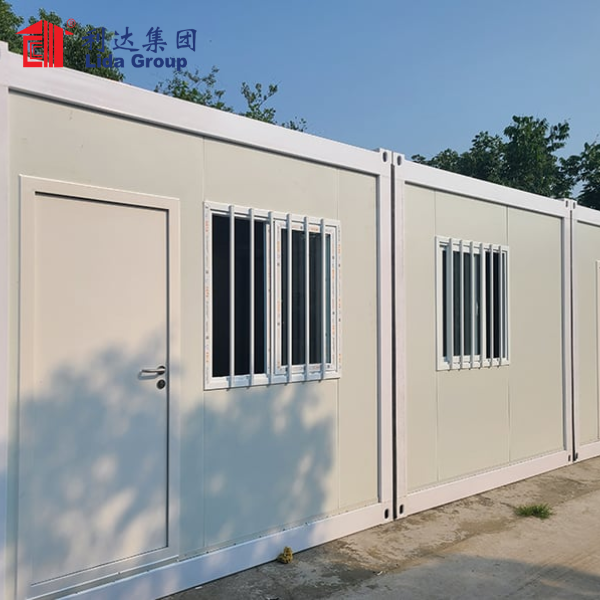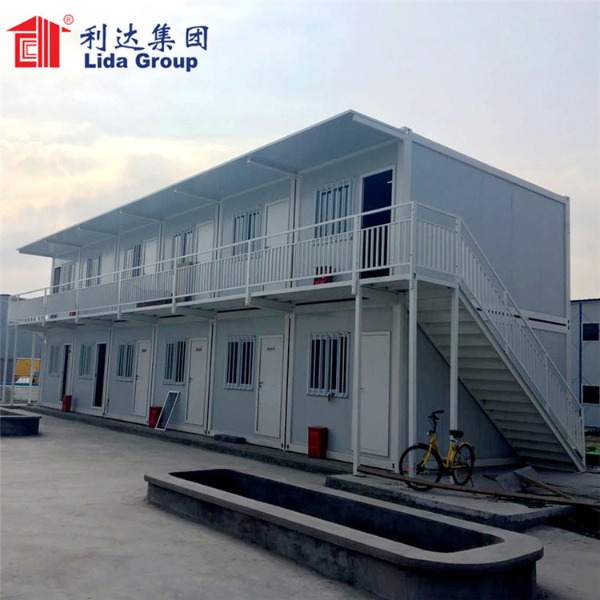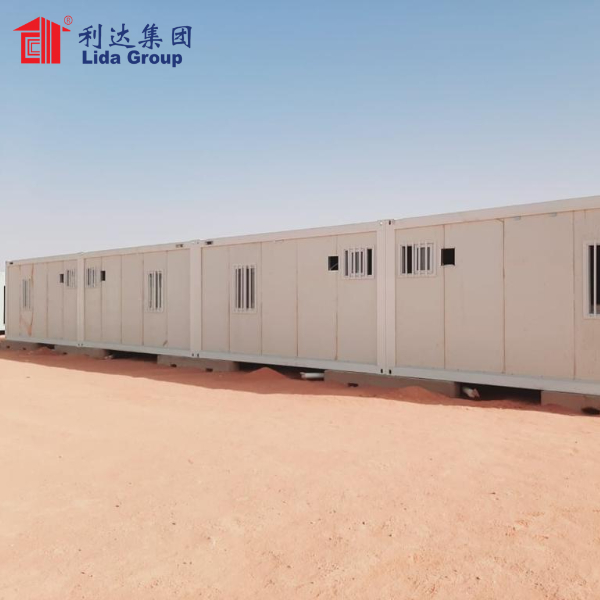Introduction:
Lida Group, a leading construction and engineering company, has been at the forefront of transforming sustainable living through its container house projects. These innovative projects have gained significant recognition for their eco-friendly design, cost-effectiveness, and adaptability. In this article, we will explore Lida Group’s container house projects, their impact on promoting sustainable living, examine their unique features and benefits, discuss their applications in various contexts, and highlight how they contribute to transforming our approach to sustainable housing.
- The Need for Sustainable Living:
1.1 Environmental Challenges:
As the world faces increasing environmental challenges such as climate change, resource depletion, and pollution, the need for sustainable living has become more urgent than ever. Traditional construction methods often contribute to excessive waste generation, energy consumption, and carbon emissions. Lida Group’s container house projects offer a sustainable alternative that addresses these challenges by repurposing shipping containers and adopting eco-friendly construction practices.
1.2 The Importance of Sustainable Housing:
Housing is a fundamental aspect of human life, and its impact on the environment cannot be overlooked. Sustainable housing aims to minimize resource consumption, reduce carbon footprint, and create healthier living environments. Lida Group’s container house projects play a crucial role in transforming sustainable living by providing energy-efficient, environmentally friendly, and affordable housing options.
- Unique Features and Design Concepts:
2.1 Repurposing Shipping Containers:
One of the standout features of Lida Group’s container house projects is the repurposing of shipping containers. These containers, which would otherwise end up as waste, are transformed into functional living spaces. By repurposing these containers, Lida Group maximizes resource utilization and reduces the demand for new construction materials, contributing to a more sustainable construction industry.
2.2 Modular Construction:
Container houses are built using a modular construction approach, where individual containers are connected or stacked to create larger living spaces. This modular design offers flexibility and scalability, allowing for easy expansion or downsizing based on the needs of the occupants. It also enables quick and efficient construction, reducing both time and costs associated with traditional building methods.
2.3 Energy Efficiency:
Lida Group’s container house projects prioritize energy efficiency through various design elements. The use of insulation materials helps to maintain comfortable indoor temperatures, reducing the reliance on heating or cooling systems. Additionally, container houses can be equipped with energy-saving features such as solar panels, LED lighting, and efficient appliances, further minimizing energy consumption and promoting sustainable living.
2.4 Sustainable Materials and Practices:
In line with their commitment to sustainability, Lida Group incorporates environmentally friendly materials and construction practices in their container house projects. These include the use of low VOC (Volatile Organic Compound) paints, sustainable flooring options, and eco-friendly insulation materials. By adopting such practices, Lida Group ensures that their container houses have minimal environmental impact throughout their lifecycle.
- Benefits and Applications:
3.1 Cost-Effectiveness:
Container house projects by Lida Group offer cost-effective housing solutions. The repurposing of shipping containers significantly reduces material costs compared to traditional construction methods. Moreover, the modular construction approach allows for efficient use of resources, optimizing construction time and labor costs. These cost savings make container houses an affordable option for individuals and communities seeking sustainable housing solutions.
3.2 Eco-Friendliness:
The eco-friendly nature of Lida Group’s container house projects is a significant benefit. By repurposing shipping containers, these projects reduce the demand for new construction materials, helping to conserve natural resources. Furthermore, the energy-efficient design and incorporation of sustainable materials contribute to lower energy consumption and carbon emissions, promoting a greener and more sustainable living environment.
3.3 Versatility and Adaptability:
Container houses offer versatility and adaptability for various applications. They can be used as residential homes, offices, temporary shelters, pop-up shops, or even community centers. Their modular design allows for easy customization and reconfiguration, making them suitable for different spatial requirements and changing needs. Lida Group’s container house projects demonstrate the adaptability of these structures, enabling sustainable living in diverse contexts.
3.4 Disaster Resilience:
Container houses have proven to be resilient in the face of natural disasters. The robustness of shipping containers, combined with appropriate structural reinforcements, makes container houses capable of withstanding extreme weather conditions. In disaster-prone areas, these structures serve as safe and reliable shelters, providing protection and security to individuals during emergencies. Lida Group’s container house projects contribute to enhancing community resilience and disaster preparedness.
- Transforming Sustainable Living:
4.1 Promoting Resource Conservation:
Lida Group’s container house projects contribute to the conservation of natural resources. By repurposing shipping containers, these projects minimize waste generation and reduce the extraction of raw materials. Additionally, the use of sustainable materials and energy-efficient design reduces the overall environmental impact, helping to preserve ecosystems and conserve resources for future generations.
4.2 Reducing Carbon Footprint:
The adoption of container houses as a sustainable housing solution plays a significant role in reducing carbon emissionsand mitigating climate change. The repurposing of shipping containers reduces the need for traditional building materials, which are energy-intensive to produce. Moreover, the energy-efficient design and incorporation of renewable energy sources in container houses help minimize energy consumption and reliance on fossil fuels, further reducing carbon footprint.
4.3 Fostering Community Engagement:
Lida Group’s container house projects have a positive impact on communities, fostering community engagement and participation. These projects often involve local stakeholders, including residents, in the planning and construction process. The modular nature of container houses allows for community-driven initiatives, such as collective gardens, shared spaces, and collaborative design, promoting a sense of ownership and social cohesion among residents.
4.4 Addressing Housing Affordability:
One of the pressing challenges in many regions is the lack of affordable housing. Lida Group’s container house projects provide an affordable alternative, particularly for low-income individuals and communities. The cost-effectiveness of these projects, coupled with their energy-efficient design and reduced maintenance costs, makes sustainable housing more accessible and financially viable for a broader population.
4.5 Inspiring Innovation and Creativity:
Container houses offer a canvas for innovation and creativity in architectural design. Lida Group’s projects showcase the potential of container structures as aesthetically pleasing, functional, and modern living spaces. The adaptability of container houses allows architects and designers to experiment with different layouts, materials, and facade designs, pushing the boundaries of sustainable architecture and inspiring new possibilities for the future.
Conclusion:
Lida Group‘s container house projects are at the forefront of transforming sustainable living. By repurposing shipping containers and adopting eco-friendly construction practices, these projects offer cost-effective, energy-efficient, and versatile housing solutions. The unique features and benefits of container houses, such as modularity, adaptability, and disaster resilience, make them a compelling option for promoting sustainable living in various contexts. Lida Group’s commitment to environmental sustainability, resource conservation, and community engagement sets an example for the construction industry and inspires innovation in sustainable architecture. As we continue to face the challenges of climate change and resource scarcity, Lida Group’s container house projects provide a blueprint for a more sustainable and resilient future.
Post time: Sep-15-2023



